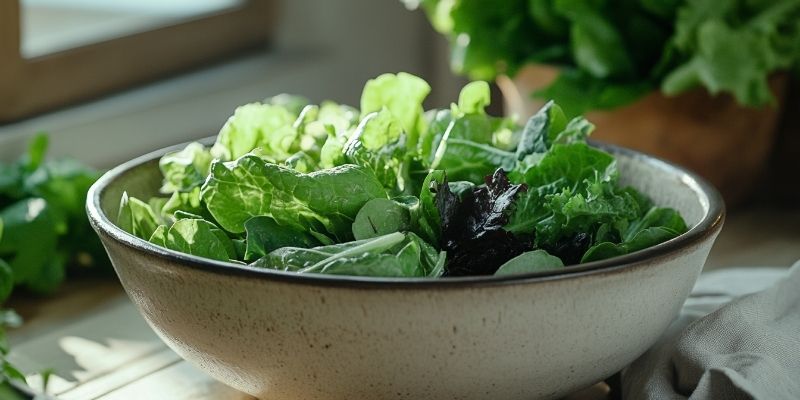The relief enzymes provide can feel like a breakthrough, offering a glimpse of better digestion. Yet, true and lasting results often require a deeper, more comprehensive approach—one that goes beyond symptom management to tackle the underlying factors contributing to poor digestion. But, while enzymes can be a powerful tool to support your journey to better digestive health, they are only one piece of the puzzle.
Here, I’ll look at digestive enzymes, how they work, and why they may play a role in improving your digestion. I’ll also discuss the habits and dietary choices that can naturally enhance your body’s enzyme production and the signs that it’s time to seek professional guidance.

Digestion Starts Before You Take a Bite
Digestion begins before you even take your first bite. The smell, sight, and thought of food stimulate saliva production, which contains the amylase enzyme. This enzyme starts breaking down carbohydrates into simpler sugars while the food is still in your mouth. Chewing thoroughly helps to begin the process of breaking down food into smaller pieces, mixing the food with saliva and making food easier to swallow. Think of chewing your food as a critical step in improving your digestion.
The process of chewing:
- Physically breaks food into smaller pieces, increasing the surface area for enzymes to work and help us absorb the nutrients from food.
- Mixes food with saliva, allowing amylase to begin carbohydrate digestion.
- Signals to the stomach that food is on its way, helping it to prepare by producing stomach acid and enzymes.
Eating too quickly, gulping your food or swallowing large pieces of food without chewing, places extra strain on the stomach and pancreas, which must then work harder to compensate.
After Swallowing: It’s All About Enzymes
- Stomach: The enzyme pepsin begins breaking down proteins into smaller peptides. Stomach acid activates pepsin and creates an acidic environment for effective digestion.
- Small Intestine: Pancreatic enzymes, including protease (for turning proteins into amino acids), lipase (for turning fats into fatty acids), and amylase (for turning complex carbohydrates into simple sugars), take over. Enzymes in the lining of the small intestine finish breaking down nutrients into the food molecules your body can absorb.
Without sufficient enzyme activity, the body struggles to break down food effectively. This can lead to undigested food in the intestines as well as symptoms such as, bloating, gas, and other digestive issues.
Thorough chewing is a vital step, but ensuring your body has enough enzyme support—either naturally or through supplementation—is critical for optimal digestion.

Why Might Digestive Enzymes Help?
- Lactose Intolerance: Those who lack the enzyme lactase struggle to digest lactose, the sugar in milk, leading to bloating and diarrhoea. A lactase supplement can help.
- Exocrine Pancreatic Insufficiency (EPI): Conditions like chronic pancreatitis or cystic fibrosis can reduce the pancreas’s ability to produce enzymes, leading to digestive enzyme deficiency and malabsorption.
- Ageing: Enzyme production naturally declines with age, which can result in slower digestion and increased discomfort.
- High-Stress Lifestyles: Chronic stress can suppress enzyme production and digestive function, leading to incomplete digestion.
Enzyme supplements don’t fix the root cause but can temporarily alleviate symptoms, offering a “bridge” while deeper healing is pursued. They are most effective when used as part of a comprehensive protocol tailored to your needs.
Why Enzymes Are Not the Whole Answer
True digestive healing requires a comprehensive approach. This may include:
- Identifying food intolerances or sensitivities.
- Addressing imbalances in gut bacteria.
- Supporting the digestive organs themselves, such as the liver and pancreas.
- Managing stress and lifestyle factors that impact digestion.
As a medical herbalist, my goal is to help you understand not just what is happening with your digestion, but why. Enzymes can be part of the solution, but lasting results come from addressing the whole picture.
Raw vs Cooked Foods and Enzyme Activity
Raw foods, such as sprouted grains, vegetables and fruits, are natural sources of enzymes. For example:
- Pineapple (the stem) contains bromelain, a protease that aids protein digestion.
- Papaya has papain, another enzyme that supports protein breakdown.
These natural enzymes can supplement your body’s own production, easing the digestive burden. Cooking, however, destroys most enzymes, which is why raw foods are often recommended for boosting healthy digestion. That said, not all foods should be eaten raw—some, like beans and grains, are easier to digest when cooked. A balance of raw and cooked foods, tailored to your needs, is usually best.

Lifestyle Tips to Support Digestive Health
- Chew Thoroughly: Proper chewing activates enzymes and reduces the digestive strain on your stomach and pancreas.
- Eat Mindfully: Avoid distractions during meals and eat in a calm, relaxed environment.
- Incorporate Bitter Foods: Foods like rocket, dandelion greens, and citrus peel stimulate digestive enzymes and bile production.
- Stay Hydrated Strategically: Drink water between meals rather than during, to avoid diluting stomach acid.
- Manage Stress: Chronic stress can inhibit enzyme production. Managing stress with practices like yoga or deep breathing can help.
- Avoid Overeating: Smaller meals are easier to digest and prevent enzyme overload.
- Engage in Gentle Activity: Light walks after meals can stimulate the digestive process.
- Prioritise Sleep: Poor sleep disrupts digestion and slows enzyme production.
Red Flags: When to See a Doctor
- Unintended Weight Loss: Losing weight without trying could signal malabsorption or illness.
- Blood in Stools: May indicate internal bleeding or serious gastrointestinal issues.
- Severe Abdominal Pain: Sudden or persistent pain could point to appendicitis, ulcers, or gallstones.
- Difficulty Swallowing: Could suggest problems with the oesophagus.
- Chronic Diarrhoea or Constipation: Persistent changes in bowel habits should be investigated.
- Vomiting Blood or Black Material: Requires urgent care.
- Unrelenting Fatigue: When combined with other symptoms, it could indicate malnutrition or chronic illness.
If you develop any of these symptoms make sure to consult with a healthcare provider to rule out serious conditions.









0 Comments